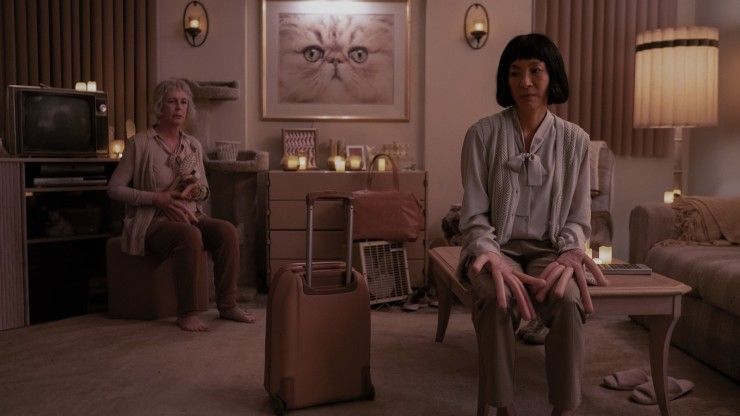
Are theaters too "antiquated" to support arthouse films?
The Russo brothers are known for making some of the biggest films to hit theaters and streaming services in recent years. While they are passionate fans of indie cinema, the Russos are fixated on the future of Hollywood.
During Variety’s Showman of the Year interview, the Russos discussed Hollywood’s future and AGBO, their production company that opened in 2017, and how audiences continue to upend how and where they want to consume storytelling.
“Things are changing fast, which we’re very excited by,” Anthony Russo said. “We’re futurists. We love new technology. We love the energy that it brings to our process, the possibilities that it creates for how we communicate with audiences. Then we meet the market where it is at that moment. That’s been our agenda from the beginning, and it’s served us very well.”

One of the ways the Russo brothers understand the global franchise is how audiences watch media, saying that movie theaters are antiquated despite film lovers’ attempts to keep the theaters open and alive.
“This is a shoot-the-messenger situation,” Joe Russo said. “I’m just telling you what I see, as a guy who has been in this business for 25 years. I don’t know that the market is going to be able to support art-house films the way that it did in the past.”
The truth is that the movie theater business has been struggling for years. According to Comscore statistics, the total box office take for the summer of 2022 was $3.027 billion, showing an improvement of 134.5% compared to the same period last year, but it was 17.5% down on 2019 numbers.

The movie theater business has an unclear future that lies ahead, and studios are not helping theater owners in this fight. In August, Warner Bros. Discovery CEO David Zaslav made the infamous decision to cancel the nearly completed HBO Max superhero film Batgirl and take a tax write-off because the film would not be profitable due to its nontheatrical release.
To justify this decision, Zaslav declared that expensive tentpole movies do not make financial sense as exclusive streaming films.
“It’s rare that I can think of something that high profile, that expensive, that was murdered in such a way,” Joe Russo said of Batgirl. “It’s sad, but we’re at a time in the business where corporate sociopathy is going to rear its head because people are scared.”
But The Gray Man, the Russos’ latest Netflix film, did not play in theaters for longer than a week despite its high budget of $200 million. This is something that the Russo brothers are not worried about.
“I’ve got four kids, so I can identify Gen Z’s habits pretty accurately,” Joe Russo said. “They don’t have the same emotional connection to watching things in a theater.”
Can you compare a film made for a streaming service to a film that was made for a theatrical release like Daniels' Everything Everywhere All at Once? Everything Everywhere hit theaters with a limited release in March, drawing in somewhere between $50-$52 million. Due to its success, the film got a wider release in April and quickly became A24’s highest-grossing film of all time.
But once the film hit streaming services, it disappeared from the conversation and was lost among the thousands of other shows and films on streaming services.

Some films are made for theaters and some films are made for streaming services. Whichever you prefer is up to you.
Personally, I adored Warner Bros.' day-to-date releases with theatrical films landing on its streaming service on the same day. It gave audiences the option to watch how they wanted to watch. It personalized the film-watching experience for viewers, giving them the ability to celebrate cinema either from the comfort of their own homes or in the theater with fellow film lovers.
Movie theaters are not dead, but nobody knows how to deal with the declining numbers. While I am not a massive fan of Zaslav's choices, I do acknowledge that he is trying to get people back into the theaters. Studios like Amazon and Netflix may never put their films in theaters for more than a week. As these streaming giants become dominant forces in the industry, they will likely shape how we watch films in the future.
All we can do as filmmakers and film lovers is go to the theater and support our community fully.
Let us know your thoughts in the comments below!
Your Comment